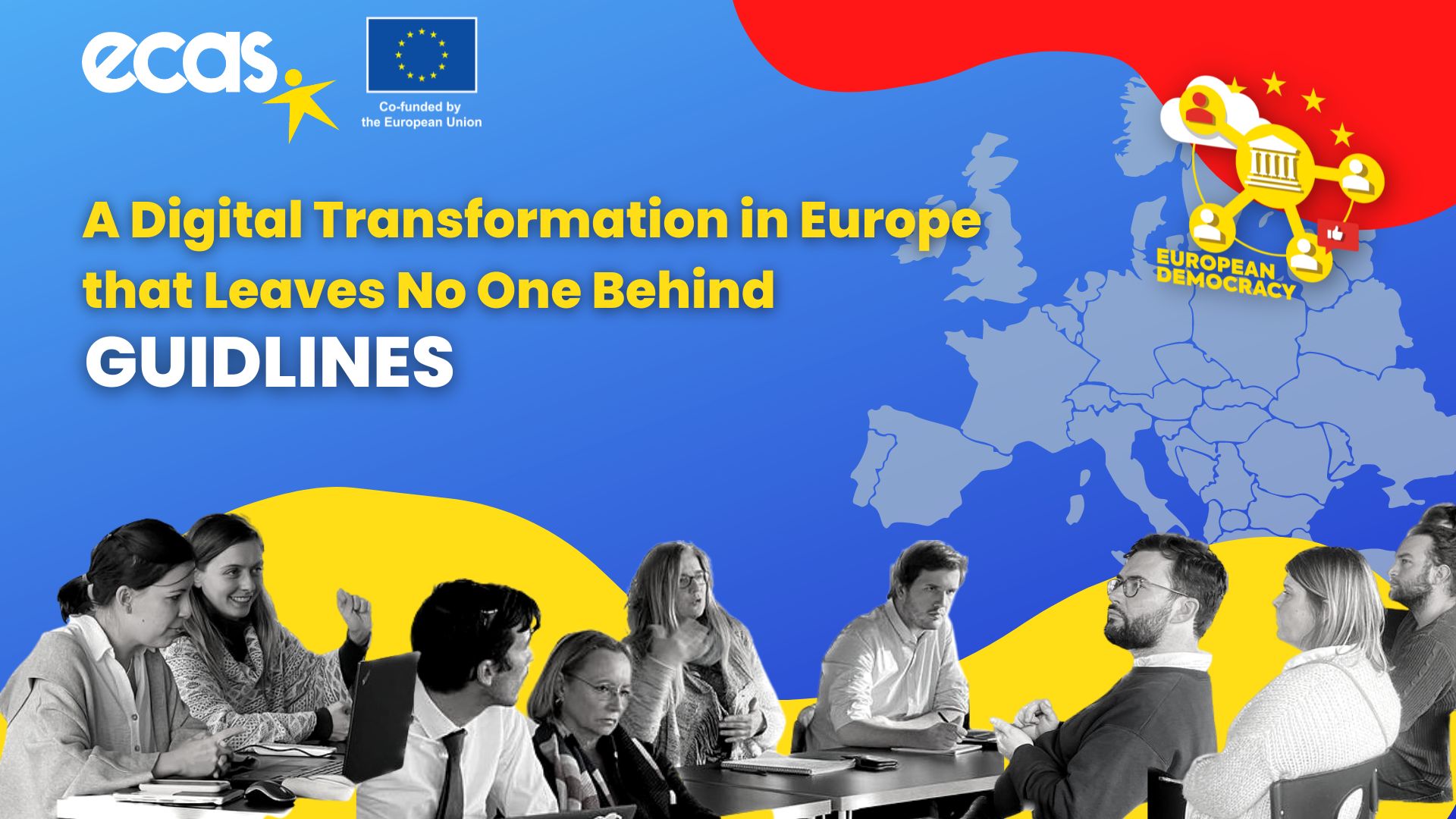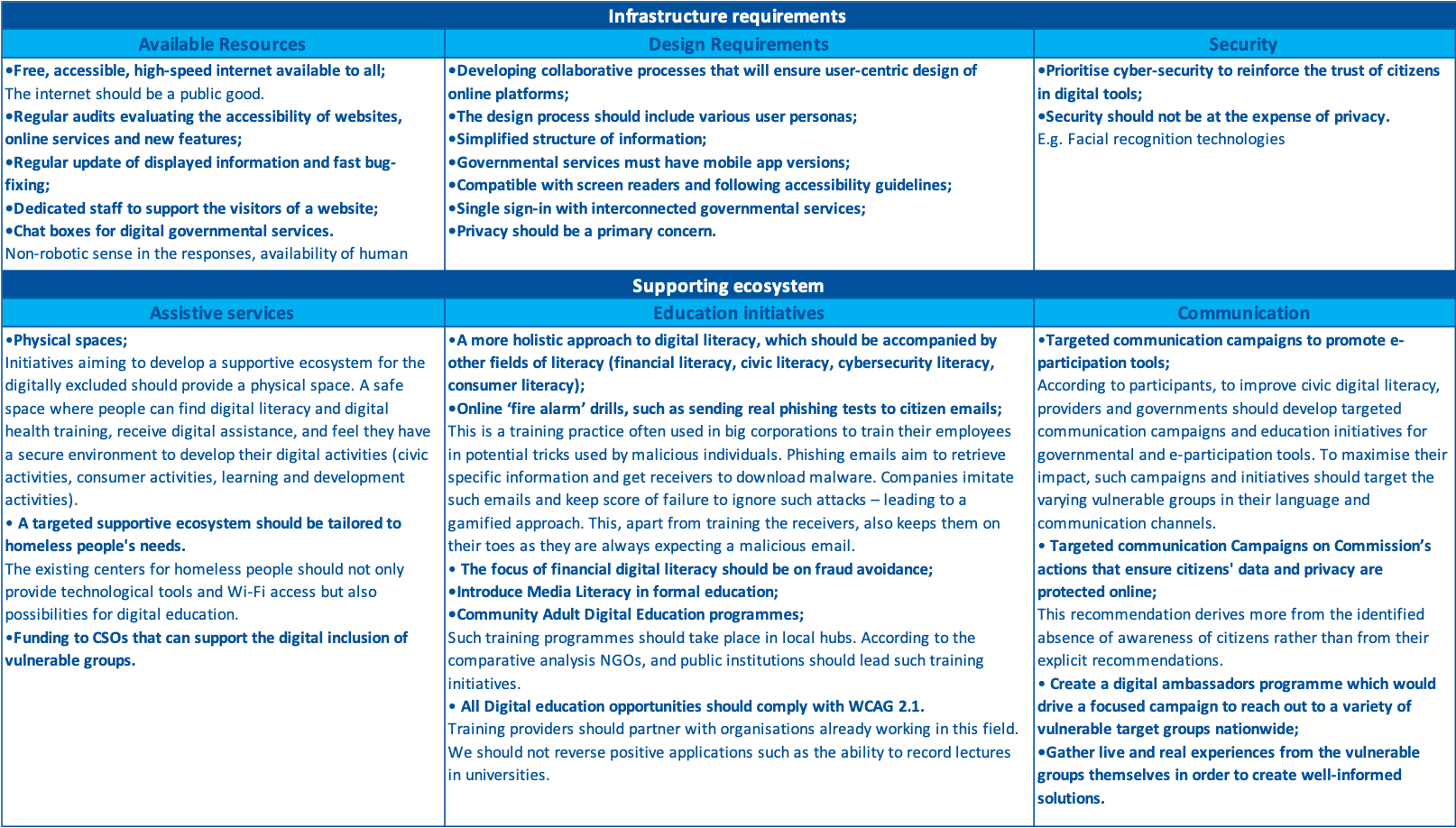
Digital policies have been one of the cornerstones of EU legislation since many years, and one of the most important challenges today is to achieve a digital transformation in Europe that works for all, without further deepening the existing digital divide or creating new inequalities. In an effort to raise awareness and give the opportunity to local stakeholders to contribute to the discussion on digital inclusion, in 2022, ECAS, and some of its Member Organisations organised interactive training and co-creation events focusing on five policy areas: Digital Democracy, Digital Economy, Digital Safeguards, Digital Rights, and Digital Education. Five events took place in different Member States in 2022: Ireland, Portugal, Latvia, Belgium and Luxemburg. Each event invited Civil Society representatives, national policymakers, digital transformation experts and citizens from a Member State to discuss the state of play of digital policies and more inclusion for the future.
During the events, ECAS together with national experts presented the main challenges of digital transformation at the EU level and more local level. ECAS had the possibility to showcase the recommendations advocated -up until then- by civil society organisations all across Europe in the framework of the Civil Society Convention that was contributing to the Conference on the Future of Europe. The participants then had a chance to propose their own recommendations during a co-creation session and discuss citizens’ interests, mainly of vulnerable groups.
Based on these recommendations, ECAS developed a set of Digital Inclusion Guidelines.
ECAS identified recurring themes in the five Member States with practical proposals in two broad categories:
The infrastructure requirements concern the resources and processes that ensure the accessible design of online services and the necessary measures to provide security.
The supporting ecosystem guidelines ensure that socially excluded groups have the required assistance to navigate through the digital world and develop their digital competencies as empowered citizens. It can be summarised in three main areas of societal action: Assistive services, Education initiatives, and communication campaigns.
Below you can take a look at the summary table of the guidelines.
You may find the full report here.

The Guidelines are created under the Operating Grant framework contract EURECA – co-funded by the European Commission, Citizens, Equality, Rights and Values (CERV) programme.